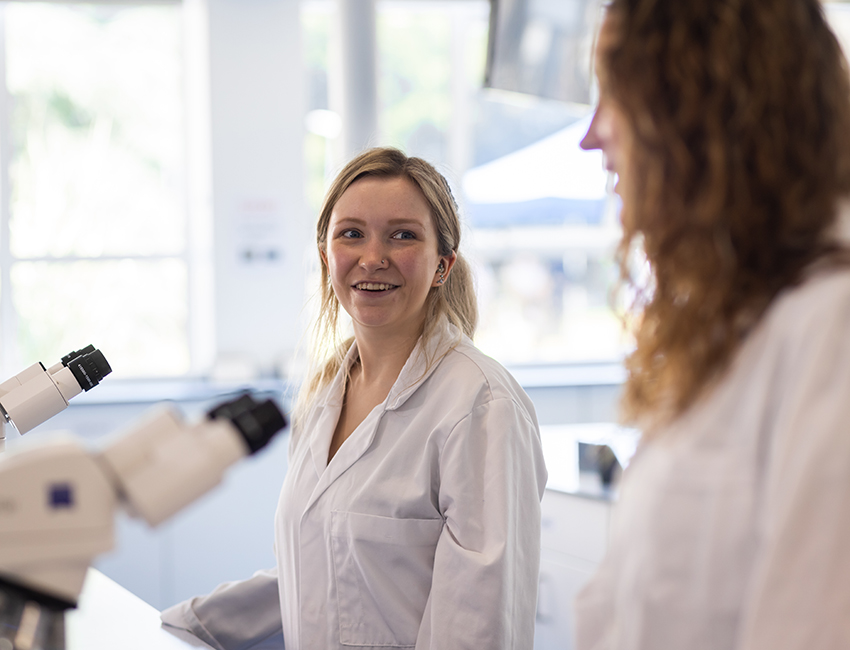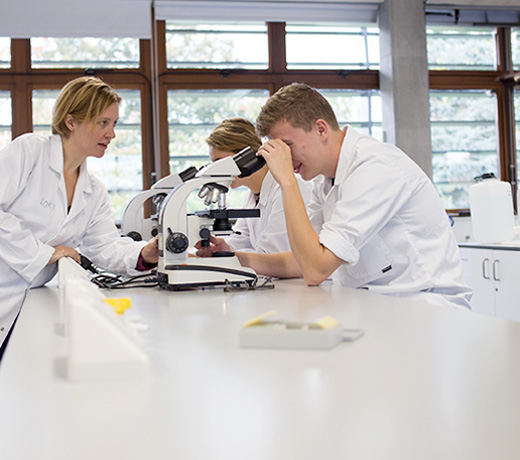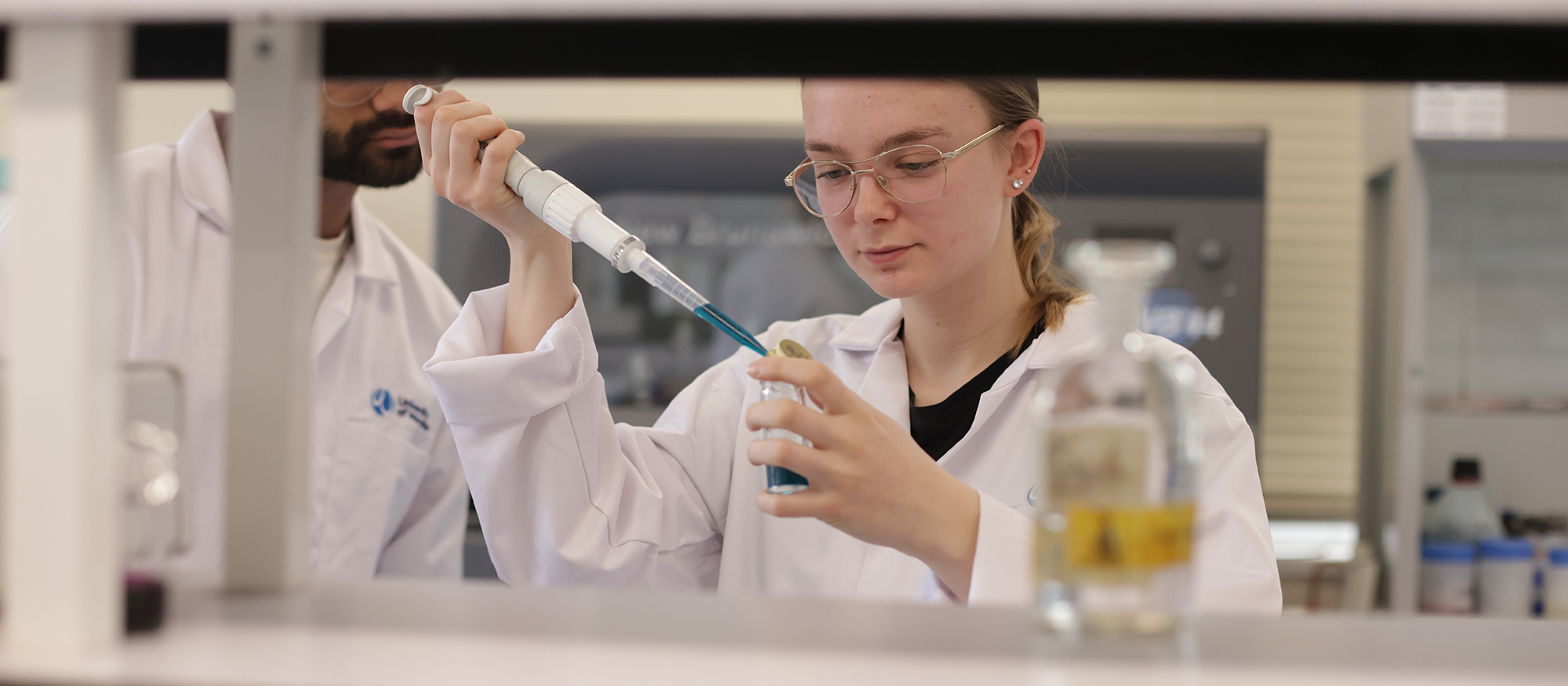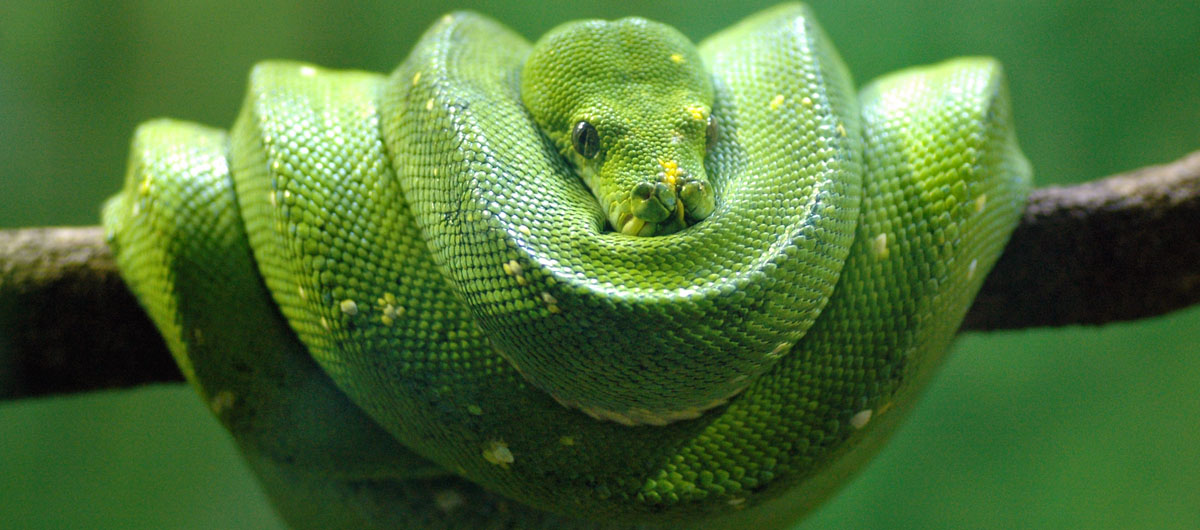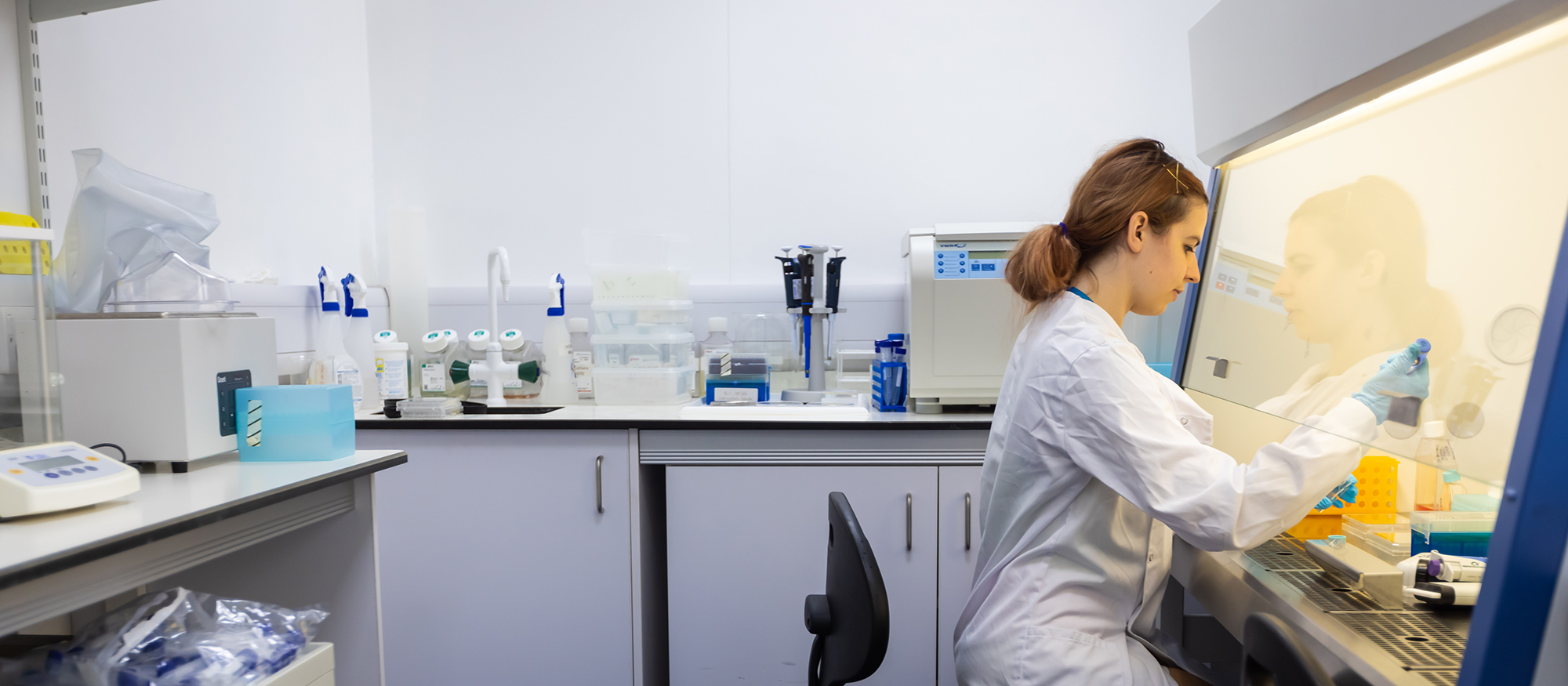You’ll be taught by the same academics and have access to the same specialist facilities as our undergraduate students. You’ll develop your study skills and learn to manage data through regular field and laboratory experiences.
were positive about the teaching on this course.
in the UK for Quality Education
Accreditation
Although the Foundation Year itself isn’t accredited, many of the degree programmes you can progress onto are accredited by recognised industry bodies.
First for jobs
The University of Worcester is first in the UK for sustained employment, further study or both, five years after graduation (excluding specialist institutions) - Longitudinal Educational Outcomes Survey 2024. Read more.
Overview
This is an excellent alternative route to degree-level study, with guaranteed entry onto your chosen undergraduate Science course when you complete your Foundation Year. Our excellent teaching staff, open-door policy and Personal Academic Tutoring scheme mean you’ll get all the support you need throughout your studies.
The Foundation Year has been carefully designed to build your confidence, develop your academic skills, and provide you with the subject knowledge you need to be successful in your undergraduate degree. Theis course has a strong practical focus, meaning you’ll also have regular access to our specialist facilities and equipment, supported by the University’s skilled technical staff. By the time you progress to degree-level study, you’ll be familiar with conducting field and laboratory work, and have a wider understanding of how science works in practice.
At Worcester, we foster a friendly and supportive learning environment. You’ll get to know your fellow students through regular group work opportunities, and as a member of our School of Science and the Environment, you’ll be eligible to join our Biology and Biomedical Science societies.
Course content
Our Foundation Year has been specifically designed to support your transition to degree-level study. You’ll develop your knowledge and understanding of the biological and environmental sciences through four mandatory modules.
Careers
Our Foundation Year programme is aimed at students who wish to study biological or environmental sciences at degree level but have non-standard entry qualifications. After successfully completing the Foundation Year, you can progress onto one of our undergraduate Science degrees:
- Biological Sciences (Biology)
- Biological Sciences (Biochemistry)
- Biological Sciences (Zoology)
- Biomedical Science
- Environmental Management and Sustainability
- Forensic and Applied Biology
- Forensic Science
- Geography
- Medical Sciences
Graduates across our Science courses have successfully gained jobs as:
- Research scientists
- Physician associates
- Secondary school teachers
- Laboratory technicians
- Biomedical scientists
- Water quality scientists
- Forensic scientists
- Data analysts
Many of our Foundation Year graduates have also chosen to pursue postgraduate study after completing their degree, including MPhil Plant Biology and PGCE Secondary Science: Biology.
Course highlights
Teaching and assessment
You’ll be taught through a combination of interactive workshops, lectures, seminars, fieldwork, and practical laboratory activities.
Throughout the Foundation Year, you’ll have opportunities to regularly test your knowledge and understanding through informal assessment methods, such as multiple-choice quizzes. Formal assessment methods include exams, written assignments, group and individual reports, and oral presentations.
Teaching and assessment contents
The Foundation Year aims to provide a supportive learning environment that will enable you to develop your level of scientific knowledge and move towards increasing independence in your studies.
You will learn through a wide range of activities, including:
- Lectures
- Seminars
- Workshops
- Group projects
- Laboratory practicals
- Computer-based activities
- Field trips and visits
Meet the Science team
Meet some of the School of Science and the Environment staff that you will learn from.
Entry requirements
GCSE grade C/4 or above in English Language or English Literature, or the equivalent qualifications.
T Levels may be used to meet the entry tariff requirements for this course. Find out more about T levels as UCAS tariff points here.
Applicants for these courses must have a good command of reading, writing and spoken English.
Any questions?
If you have any questions about entry requirements, please call our Admissions Office on 01905 855111 or email admissions@worc.ac.uk.
Fees
Fees contents
UK and EU students
The Government has announced that it will increase tuition fees and maintenance loans by 3.1% from the 2025/26 academic cycle. Subject to approval, the University intends to increase our tuition fees in line with this and as per our terms and conditions. This means that from September 2025 the standard fee for full-time home and EU undergraduate students on BA/BSc/LLB degrees and FdA/FdSc degrees will be £9,535 per year for new and continuing students.
For more details on course fees, please visit our course fees page.
International students
The standard tuition fee for full-time international students enrolling on BA/BSc/LLB degrees and FdA/FdSc degrees in the 2025/26 academic year is £16,700 per year.
For more details on course fees, please visit our course fees page.
Student case studies
Find out more about some recent Biological Science with Foundation Year students.
How to apply
How to apply contents
Applying through UCAS
UCAS is the central organisation through which applications are processed for full-time undergraduate courses in the UK.
Read our how to apply pages for more information on the application process, or if you’d like to apply for part-time study.
You can apply for our individual programmes, with Foundation Year, via UCAS:
Biomedical Science - B955
Environmental Management and Sustainability - F851
Forensic and Applied Biology - FC50
Biological Sciences (Biology) - C150
Biological Sciences (Biochemistry) - C750
Biological Sciences (Zoology) - D350
Medical Sciences - B191
Contact
If you have any questions, please get in touch. We're here to help you every step of the way.
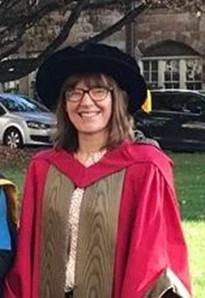
Admissions Office
admissions@worc.ac.uk01905 855111More to explore
Open Days
Visiting us is the best way to get a feel for student life at the University of Worcester.

The City of Worcester
Worcester is a welcoming university city with great transport links and plenty of student parking.

Accommodation
Benefit from our accommodation guarantee. We have rooms on campus to suit every budget including en-suite options.

